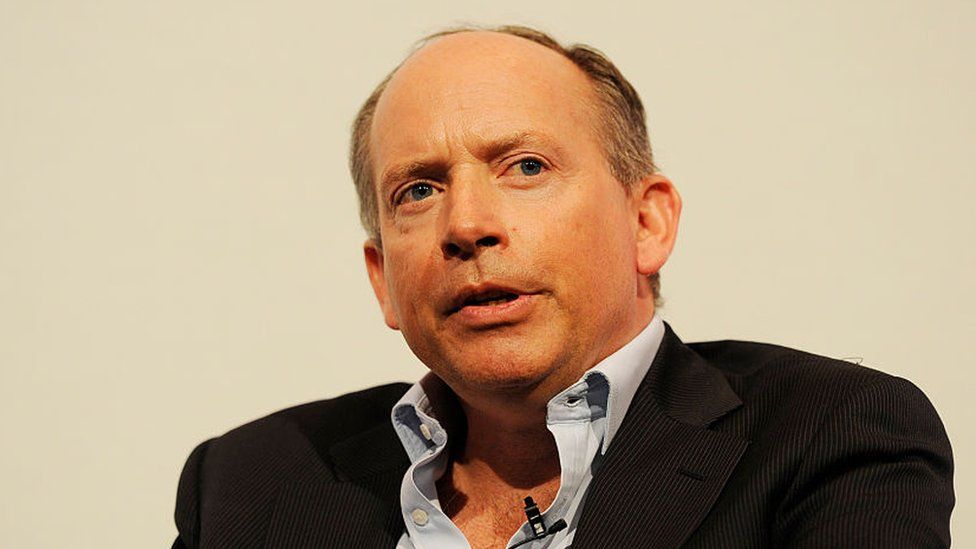Brexit deal acceptable, says top Barclays banker
- Published
- comments

Prime Minister Boris Johnson's Brexit deal is "acceptable" and the country should push ahead with it, leading banker Sir Ian Cheshire has said.
Sir Ian, chairman of Barclays' UK operations, told the BBC that business leaders wanted to see certainty.
He added that it was "extremely unlikely" further negotiations with the EU would produce a different outcome.
However, some UK business groups were more sceptical, with one calling it "a step backwards for frictionless trade".
Confidence suffering
Speaking to the BBC's Today programme, Sir Ian said: "No deal is perfect, but this deal is actually doable,
"It is, I think, very frustrating to see what appears to be a protracted process when most business leaders would like to see some certainty and get on.
"The chances of yet another round of negotiations are extremely unlikely to yield anything significantly different and now the delay is beginning to affect consumer confidence, particularly investment confidence, and I think we have to push ahead and make the best of what we've got coming down the track."
However, Ian Wright, chief executive of the Food and Drink Federation, questioned Mr Johnson's deal.
He told the BBC: "What our members want most of all is the chance to scrutinise it. You wouldn't buy a house having only one week's notice of what the terms look like. You'd want a survey, you'd want to send in the experts, you'd want to know what the structure was and we think that's important now.
"We want to see the government's economic impacts and then we'll make a proper judgement."
'Inferior' deal
Mr Wright also expressed reservations about the impact of the deal on Northern Ireland.
"Many of my members already think that the changes in Northern Ireland will make it too expensive for them to do business between Great Britain and Northern Ireland under the terms that may come," he said.
"And the political declaration has all sorts in it which is aspirational, but we need to know what we're going to look at in terms of trade deals and in terms of regulatory alignment and we're worried on both those counts."
The chief executive of manufacturers' organisation Make UK, Stephen Phipson, said Mr Johnson's deal was "inferior in many respects to the deal we had with Theresa May's withdrawal agreement".
"This problem of uncertainty is really quite critical now," he told the BBC.
"We're seeing about 70% of manufacturers in the country not investing at the moment and critically, those European customers not coming to us for new orders."
The comments from business leaders came as the pound fluctuated in the first trading session since Saturday's vote by MPs to delay approval of the Brexit deal.
Sterling fell by 0.6% against the dollar at first, but then recovered to hit a five-and-a-half-month high as it climbed above $1.30.
Currency analysts say they expect the next strong movement in the pound to be when the Brexit deal is voted on in Parliament.
However, after Saturday's vote, many believe a no-deal Brexit is now less likely. US investment bank Goldman Sachs, which issues regular updates to its clients, now thinks there is a 5% chance of a no-deal Brexit, down from 10% previously.
- Published20 October 2019
- Published20 October 2019